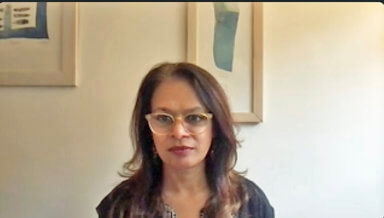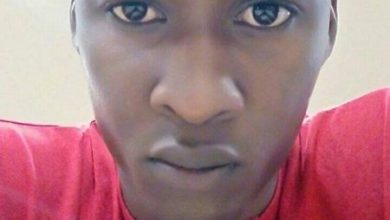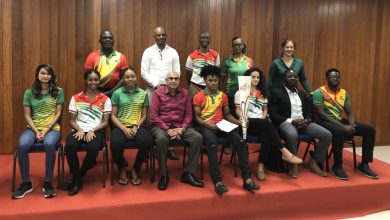Asian Americans advance their interests through political advocacy

The 15th Annual Asian-American and Pacific Islander (AAPI) City Advocacy Week in New York City starts on Feb. 27.
During this week, organizations work to push for policies and funding to support the needs of AAPI, Caribbean and Indo-Caribbean communities. The organizations involved include the Center for Asian-American Children and Families (CACF), the Caribbean Equality Project (CEP), and Chhaya Community Development Corporation (Chhaya CDC).
CACF Director of Policy and Government Relations, Felicia Singh grew up in an intercultural and interfaith home, and she said her perspective on society is heavily shaped by her working-class upbringing.
According to Singh, her mom has had the biggest impact on her journey in leadership. “I think that she is such a strong human being and has had so many different life experiences that have been incredibly difficult but also incredibly empowering.”
Prior to CACF, Singh was a teacher for 10 years, and she also ran for office. “All of these experiences have taught me that we must do everything in our power as people to ensure all of our communities are thriving,” she added.
Chhaya CDC Executive Director, Annetta Seecharran was “very fortunate that I had my foundation in Guyana, and I’m proud to be Guyanese.” Growing up, Seecharran said she was a witness to global political strife, which is why she was always interested in politics.
Coming to the United States at the age of 13 with her family in the 1980s, Seecharran noticed the lack of place and feeling of exclusion at that time, which had the biggest influence on her path today.
CEP Founder and Executive Director, Mohamed Q. Amin was also born and raised in Guyana, until he and his family migrated to the United States in 1996. Amin currently lives in Richmond Hill, Queens.
The greatest influence for the path he is on today came in 2013, on the day before the NYC Pride Parade, when “my partner, siblings, and I survived a vicious attack for being members of the LGBTQ+ community” in their Caribbean-centric Southeast Queens neighborhood.
Singh and Amin shared how seeing their parents struggle, financially, professionally or otherwise as immigrants in NYC influence the way they lead their organizations.
“My father is a taxi driver and my mom’s a school bus matron and we, like so many other working-class people, navigate systems that pits marginalized groups against one another while corporations make billions of dollars off the backs of our people,” Singh added.
“Being raised in a low-income household, my dad was a maintenance worker, and my mom was a babysitter for many years until becoming a home health aide,” Amin added. “I saw how my parents struggled to navigate New York City, and like many immigrant families with children, I had to educate myself on how to support my parents to access social services.”
Amin stated the greatest act of kindness he witnessed growing up was “observing community mobilization to protect undocumented and low-income vulnerable families.”
“My intersectional identity as a queer Muslim immigrant shaped my leadership, culture-shifting community organizing, and advocacy to advance LGBTQ+ and immigrant rights in New York,” he continued.
For Singh and Seecharran, their leadership is driven by justice and equality more than kindness.
“Everything I am and everything I do is an act of social justice. I lead to create a new system with our community towards justice and liberation,” Singh continued.
According to Singh, the biggest success story of CACF thus far under her leadership happened last year, when the New York City Council and Mayor Eric Adams announced the “historic investment in our communities both in the support for the Community Support Initiative on the city level,” and the AAPI Equity Budget on the state level.
Chhaya CDC has had numerous successes thus far under Seecharran’s leadership. These include having three times as much regarding staff, budget and reach; opening a second location in Richmond Hill, Queens; and raising $3.2 million to acquire property that will eventually become the first community center in the area.
“Chhaya CDC is driven to serve the South Asian and Indo-Caribbean communities. Most importantly, we serve anyone who needs our help,” Seecharran continued.
Successes of CEP include organizing 28 Food Distributions in 2021 and 2022, thus reaching 9,370 LGBTQ+ people, immigrant families, seniors, single-parent households, and HIV-impacted people, approximately 37,480 people, an average of 4 per household.
Additionally, Singh and Amin both agree that the COVID-19 pandemic was a huge financial challenge, and there are many small businesses still trying to recover.
According to Seecharran, there simply aren’t enough programs for communities of color. The challenge is: “We need to get in front of owning our power,” she said. She said this can be done by voting, joining local community boards or for parents, joining parent-teacher associations.
She stated that City Advocacy Week is “a good week for people to call their elected officials and share with them the issues they’re having.”
Singh agreed with this, saying it is “an important opportunity to get our issues in front of elected officials so we can share our stories and our need for investment.”
According to Amin, this week “reminds the City Council of its promise to protect all New Yorkers. It’s an opportunity to ask elected officials to invest in community-driven solutions, including capacity building for community-based organizations.”
To find your NYC Council Member, see here: https://council.nyc.gov/districts/
If you work for a community based organization that would like to be a partner or member of CACF, you can learn more at cacf.org or email fsingh@cacf.org. To support CACF and its work, interested persons can donate here: https://www.cacf.org/donate.
To stay updated on Chhaya CDC and its work, those interested can sign up for the newsletter here: https://chhayacdc.org/newsletter-sign-up/. To support Chhaya CDC, they can donate here: https://secure.givelively.org/donate/chhaya-community-development.
Interested persons can stay updated on the work of CEP by signing up for their newsletter here: https://www.caribbeanequalityproject.org/. To support CEP, they can donate here: https://www.paypal.com/donate/?cmd=_s-xclick&hosted_button_id=BEQFLK8GUF93L&source=url.




